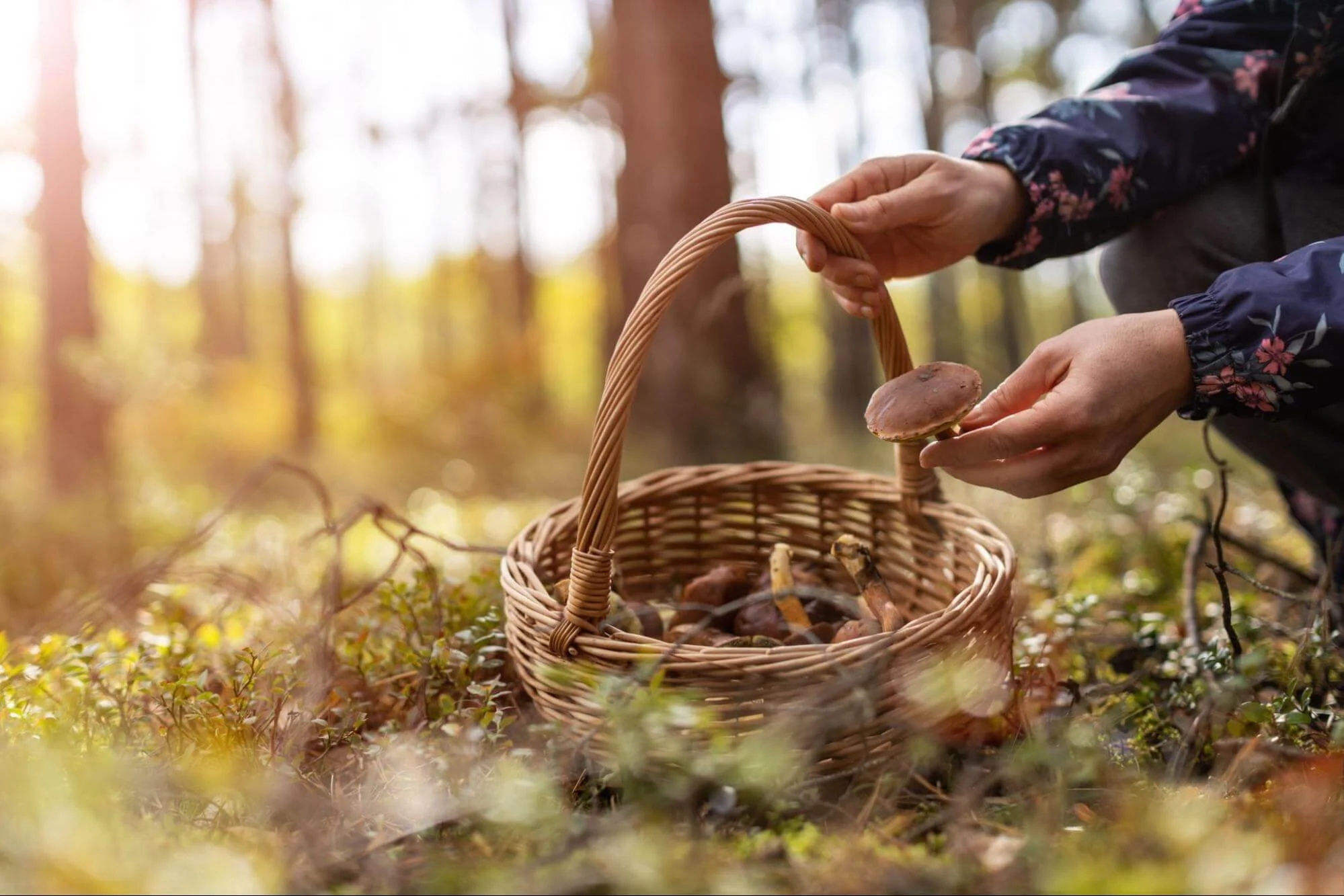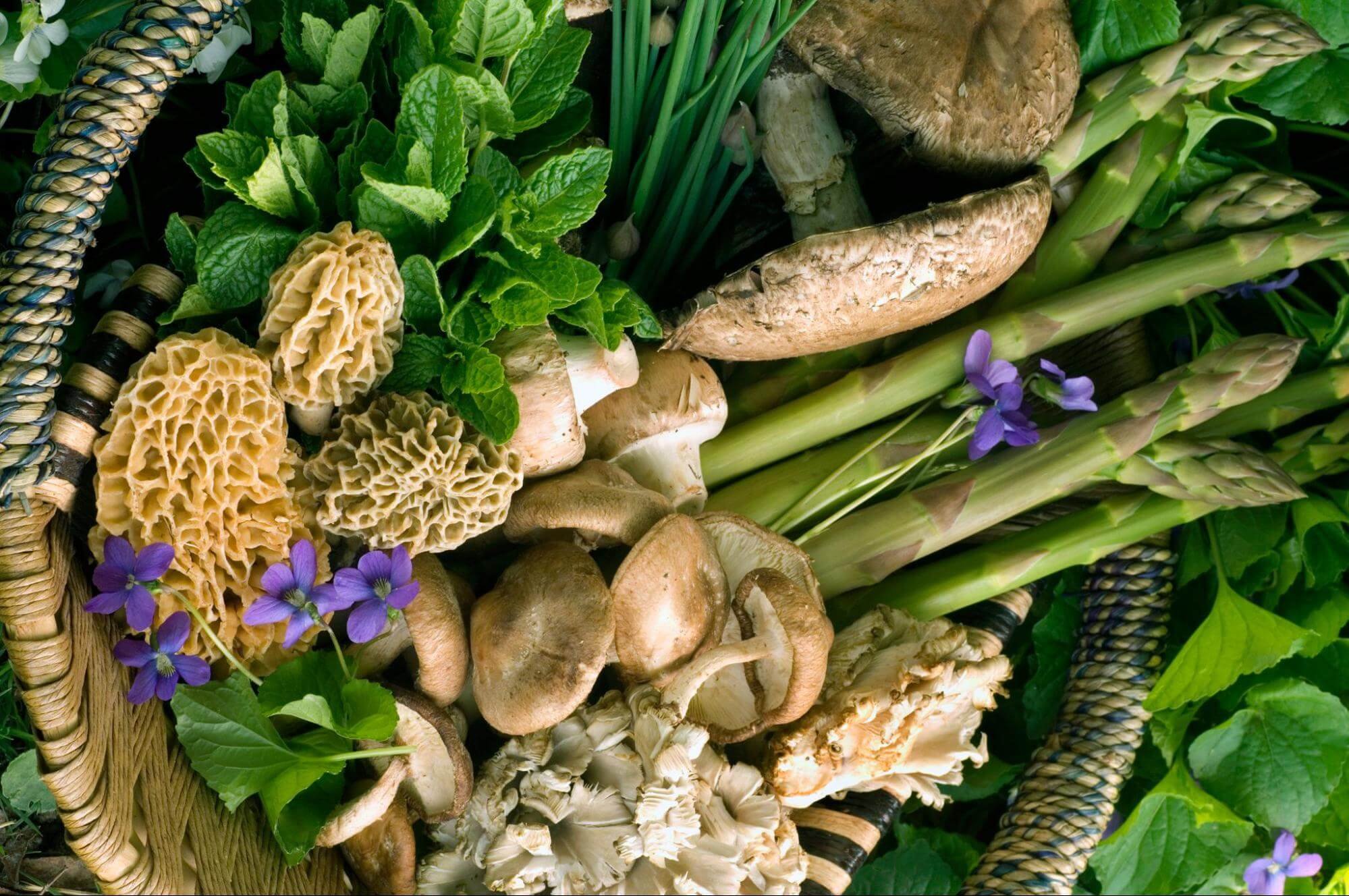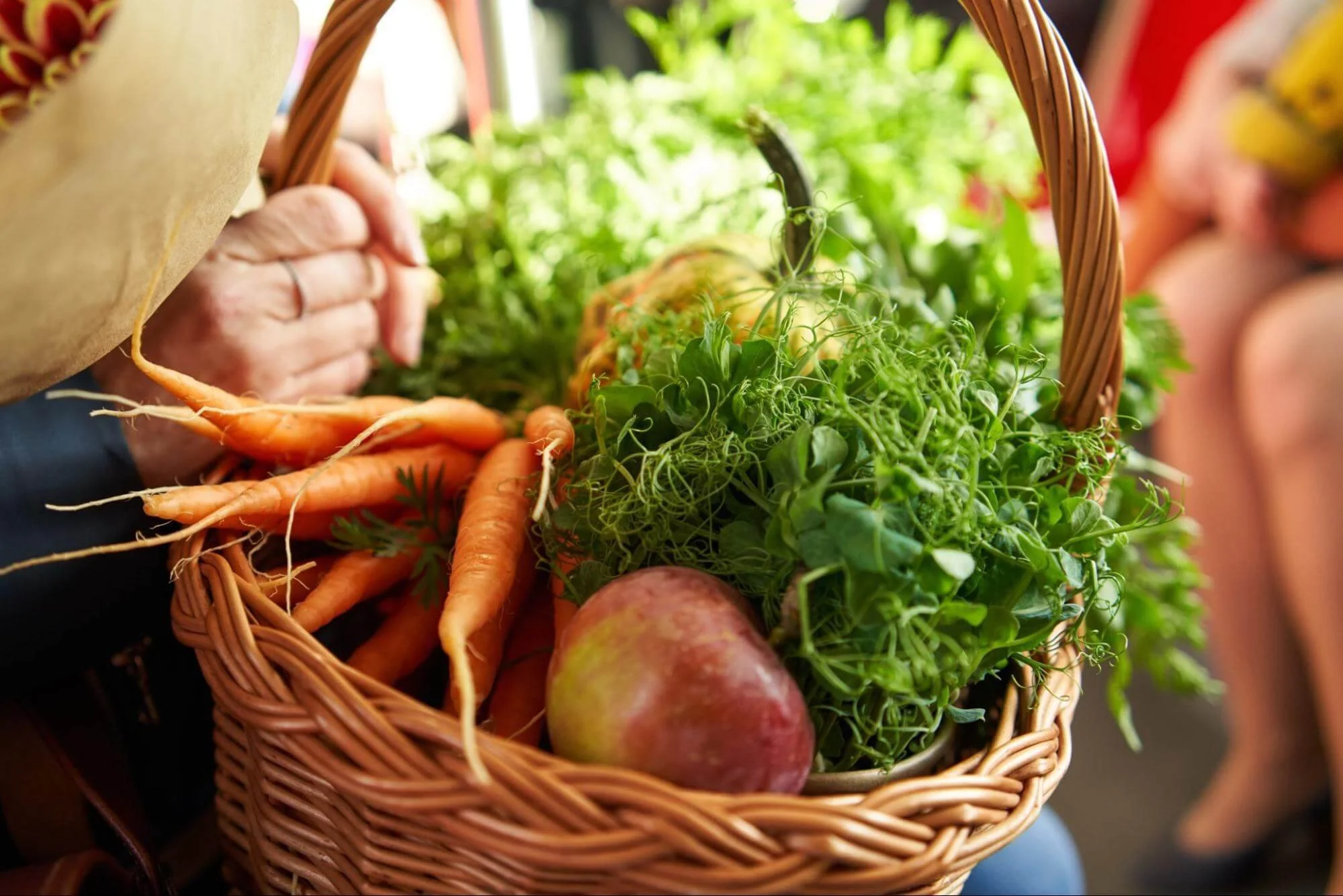A Guide to Foraging in Texas
Discover > Texas Home Cooking > Foraging > A Guide to Foraging in Texas
If you're looking for an adventure, why not try your hand at foraging in the great state of Texas? With its diverse ecosystems and a wide variety of edible plants native to Texas, it is the perfect place to embark on a wild-food harvesting journey, be it springtime or even for winter foraging around the state. From mesquite beans to cattail roots, there's no shortage of edible and medicinal plants that you can enjoy in the Lone Star State.
Before You Forage Plants
Before you set forth on your foraging expedition, it's important to become familiar with the local laws and regulations surrounding wild food harvesting. For example, is foraging legal? Generally, it is illegal to go foraging for food that belongs to someone else without their explicit permission - so make sure you know where it's acceptable to pick! Additionally, respect nature by only taking what you need and leaving enough behind for other creatures to enjoy. If you are a foraging beginner, consider going on an organized trip with an expert. You’ll learn so much more about techniques and safety. Search for foraging classes near me.
If you're wondering what specific things to take note of before foraging, here are five things to consider.
The Law
Before you forage from the edible wild, you must know about the land you plan to forage from. First and foremost, there should be no foraging in private land unless you have direct permission from the owner. If you get caught illegally foraging in private land, you might just get arrested. It's always better to ask for permission than to ask for forgiveness.
So, where to forage near me? If you're planning on foraging in public lands owned by either the state or the federal government, these lands are open for foraging in times when sustenance is needed during survival situations.
It's important to do your research before foraging in a specific plot of land; check if you require a foraging license and use the wealth of material online, like Merriwether’s detailed discussion on Texas Laws on Foraging that talks about the policies of specific areas like state-owned parks, historical sites, nature preserves, coastal beaches, and even areas within the proximity of rivers.
The Land
The key to sustainable foraging is being mindful of the land by practicing sustainable foraging. So, as a rule of thumb, be sure to collect your garbage and bring it with you after foraging, cover up holes that you dug out, and do not destroy the flora and fauna in your foraging areas. This is so that countless other people can enjoy the bounties of foraging by conserving what nature provides.
So basically what you want to abide by is that you need to know how much to forage and avoid over-foraging to avoid any adverse effects on the ecosystem of the land that you are foraging from.
Also, it is important to consider the seasonal cycles of plants in your area. Before you go out, be sure that the specific wild edibles you're looking for are in-season. This is because foragers only work with the natural world by picking seasonal plants.
The Plants
Be sure to harvest sustainably and have prior knowledge of the many wild plants in Texas before you harvest them. This is because you might be picking an extremely rare plant or causing damaging effects to plant life by spreading diseases from foraging for wild edibles.
When harvesting most plants, use sterilized tools like small blades to reduce the damage done to plants and also prevent many plant diseases from spreading. It is not advised to pick plants with your bare hand when foraging. Also, when picking plants or herbs, be sure to remove only parts of the plant [usually a quarter] while avoiding affecting the roots and reproductive parts of the plant. This is so other foragers can take advantage of your discovery.
The Self
Of course, one of the things you should consider is yourself because you're the one who's going to forage and eat whatever wild foods that you gather. This is why it is important to know what kind of plants you are picking because many plants are poisonous and can make you ill or, in rare cases, even cause death.
The local wildlife is also something that you should be knowledgeable about because this may also pose dangers to you and the animals in your chosen foraging area. Do your research and you might just avoid a bear attack or a skunk ruining your foraging basket.
The Bounties of Foraging in Texas
Now that you're well-versed in the rules of foraging Texas, let's delve into the specifics of where and what you can collect in the state. Depending on the season, South Texas showcases a diverse array of plant species that become ripe for picking when the time is right.
From early spring season favorites like wild garlic and ramps, which belong to the mint family and can even be eaten raw, to summertime staples like prickly pear, Texas prairie parsley, and yaupon holly berries that thrive in sandy soil - there is an abundance to choose from! Engaging in the practice of foraging in South Texas uncovers a rich variety of mushrooms, including chanterelles, morels, porcinis, and oyster mushrooms. Chanterelle mushrooms Texas can often be found deep in the East Texas forests. These treasures can all be discovered in wooded areas or near streams. Additionally, keep an eye out for the fiery chile pequin. Foraging equipment for sale near me can often be found in local stores or in guides and for guides and books on how to learn foraging just go online - there are plenty of resources.
Alternatives to Foraging
If foraging near me isn't your thing, but you'd still like to experience some of the best wild foods Texas offers, why not visit one of its many farmers' markets? You can find a wide selection of locally harvested fruits, vegetables, and mushrooms here. It's also a great way to support small local businesses and help cut down on food waste, and you can often pick up rare species, such as the kuska plant near me.
Also, if you're all for eating healthy, you can set up your own small homestead at home. This gives you a supply of fresh produce from a small vegetable and herb garden that will ensure that you have full control of cultivating the produce that you choose to grow.
Foraging in Texas is an adventure unlike any other. With its rich bounty of edible delights, it's the perfect place to explore all that nature offers! So grab your bag and get ready for a wild food harvesting journey - just be sure to abide by the rules and treat Mother Nature with respect. Happy foraging!









